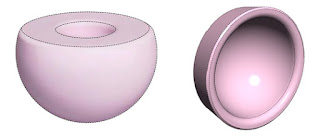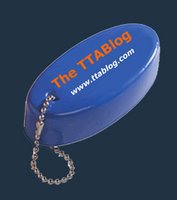TTAB Grants HALFANIMAL Cancellation Petition on the Ground of Abandonment
The Board granted a petition for cancellation of Jesus "Half Animal" Villa's 2008 registration for the mark HALFANIMAL for "Beanies; Hats; Pants; Shorts; Sweat pants; Sweat shirts; Sweat shorts; Sweat suits; T-shirts; Wind resistant jackets" on the ground of abandonment. It declined to reach Petitioner Garan's Section 2(a) false association claim predicated on Garan's registered GARANIMALS mark for clothing. Garan Services Corp. v. Jesus Villa, Cancellation No. 92074777 (March 31, 2025) [not precedential] (Opinion by Judge Elizabeth A. Dunn).
Respondent Villa sold HALFANIMAL hats and t-shirts on consignment in two Las Vegas stores from 2005 or 2006 to 2010, when the stores closed. He removed any website links to his products in 2012 and removed the product page in 2013. Villa was seriously injured in 2013, and his sales of products "went on pause." In 2019 he planned a “relaunch” of his website and online store, ordered sample hats, t-shirt, sweatshirt, and sweatpants with the HALFANIMAL mark, and in late 2021 or 2022 reactivated the merchant account on his website.
Villa submitted a declaration asserting that in 2003 he acquired the nickname HALFANIMAL as a Cirque De Soleil performer, began selling his product in 2007, and over the years sold the products online and via personal appearances. "However, with respect to specific dates of activities (other than the 2013 injury) occurring during the nonuse period of 2012 to 2019, the details are scant." He failed to provide documentation regarding sales or distribution of HALFANIMAL apparel at any time.
After reviewing all the evidence and arguments, the Board found that Petitioner Garan established a period of at least seven years on nonuse, and thus a prima facie case of abandonment. Villa attempted to overcome the prima facie case by establishing an excuse for his nonuse.
Respondent avers that he experienced a serious accident and spinal injury in 2013 that resulted in multiple surgeries, years of rehabilitation, physical ailments, and cognitive difficulties, including severe memory loss. While there appears to be no question that Respondent suffered a grievous injury in 2013, Respondent chose not to submit any medical records or statements from healthcare providers regarding his injuries. As explained above, the absence of such records is significant here because of the internal inconsistencies in Respondent’s testimony. * * * Respondent’s memory issues arising from his injury plainly are responsible for his inconsistent and unreliable testimony, and that is unfortunate. However, we have no choice but to make our determination on the record before us.
The Board noted that Villa had started to make guest appearances at an elementary school in 2005, allegedly to promote the brand. "Even if we were to excuse Respondent’s nonuse between 2013 and 2015 due to his accident, the record, at best, shows that Respondent didn’t take any action to resume use of HALFANIMAL for apparel until four years later in 2019."
The Board ruled that Villa had failed to rebut Garan’s prima facie case of abandonment through a showing of excusable nonuse.
Read comments and post your comment here.
TTABlogger comment: Do you think the marks are confusingly similar? BTW, Villa owns a 2023 registration for HALF ANIMAL for entertainment services in the field of acrobatics.
Text Copyright John L. Welch 2025.




















